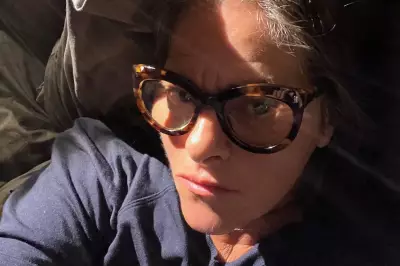
If you're searching for your next television obsession featuring a swashbuckling, dominant male lead, you might need to adjust your expectations. The screens of 2025 present a very different kind of hero: typically kind-hearted but weak-willed, and above all, remarkably amenable.
The Shift From Alpha Males to Anxious Men
Remember the early 2000s? That era delivered deeply masculine, morally ambiguous characters like Tony Soprano and Walter White from Breaking Bad. These figures dominated our screens with their charisma and complexity, earning critical acclaim for their dark storylines.
Fast forward to today's newest releases, and the landscape has transformed dramatically. In Sarah Snook's thriller All My Fault, male characters are described as 'absolutely useless' and 'bungling fools' lacking basic everyday skills. This represents a significant departure from the powerful antiheroes that once captivated audiences.
The change isn't subtle. Research from the Centre For Social Justice confirms this shift, with their poll of 2,000 people revealing that 57% of respondents believe men in media are portrayed as one of two extremes: either 'wimpy' or 'psychopaths'.
Case Studies: The New Male Archetypes
Several current television shows exemplify this trend toward softer male characters. In the popular series Nobody Wants This, Timothy Simons portrays Sasha Roklov, a 'manchild' who requires his wife to select his clothes each morning, help him access his bank account, and even load the dishwasher. The character's brother Noah, played by Adam Brody, continues this 'nice guy' dynamic that has resonated with viewers - the show's first season was viewed 57 million times within three months.
The recent reimagining of The Roses (2025) starring Benedict Cumberbatch and Olivia Colman offers another compelling example. While the original 1989 film featured Michael Douglas's character urinating on his wife's meal and running over her cat, Cumberbatch's Theo is a watered-down version - losing his architectural career and becoming an increasingly isolated stay-at-home father.
Even children's programming reflects this shift. Daddy Pig in Peppa Pig can't read a map, refuses exercise, and becomes the butt of family jokes about his size. His incompetence is played for laughs, with Peppa even using 'Daddy's big tummy' as a password for her treehouse.
Industry Perspectives on Changing Masculinity
Marketing expert Jeff Sherman explains this cultural transformation: 'From a cultural standpoint, audiences, especially younger viewers, are gravitating toward characters who feel human rather than heroic. These 'soft' male archetypes challenge rigid masculinity standards by showing men who are anxious, flawed, or still figuring themselves out.'
Graham Fulton, co-founder of film distributor Conic, adds: 'What we're actually seeing is a shift in what masculinity looks like on screen. Modern male characters are written with more emotional nuance, vulnerability and self-awareness, which some people might misread as weakness, but I think it reflects broader cultural changes.'
Fulton emphasizes that these characters aren't necessarily incompetent. 'They're written to be supportive partners, dads who try their best, or men who are allowed to be flawed and introspective. That feels like a deliberate move away from older hyper-masculine archetypes. You can see a similar shift in film: Timothée Chalamet, Paul Mescal and Jeremy Allen White represent a very different kind of male idol compared to the Schwarzenegger/Stallone era.'
Beyond Comedy: The 'Soft' Male Across Genres
This trend extends beyond comedy into other genres. In the mystery series Only Murders In The Building, season five introduces Bobby Cannavale as Nicky Caccimelio, initially appearing as a tough mobster but ultimately revealed as an Italian mama's boy still under his mother's influence.
Even sports narratives have embraced this archetype. Jason Sudeikis's Ted Lasso character embodies kindness but often appears weak-willed, forgiving betrayals and struggling with basic football knowledge until the third season. Similarly, Motherland's Kevin (Paul Ready) thrives as a stay-at-home dad but remains completely under his unseen wife's thumb.
The transformation of male characters represents more than just changing entertainment preferences - it reflects evolving cultural understandings of masculinity itself. As television continues to mirror and shape societal norms, these 'soft' heroes challenge traditional expectations while creating space for more diverse representations of what it means to be a man in modern Britain.






